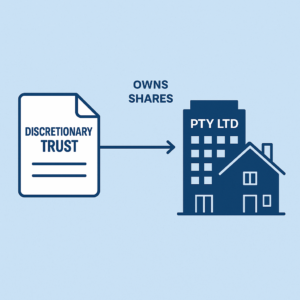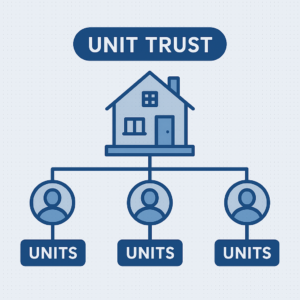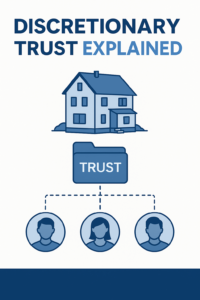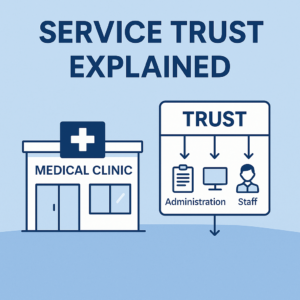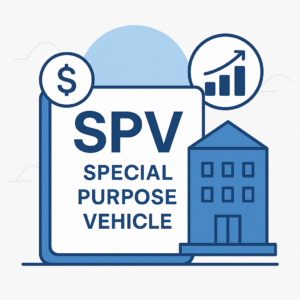Buying Property Under Your Personal Name in Australia: Pros and Cons
When investing in property, one of the first decisions you’ll need to make is whose name to buy it in.
While there are many ownership structures available — such as trusts, companies, or SMSFs — the simplest and most common option is to buy property under your personal name.
This approach is straightforward, cost-effective, and often the default for first-time investors or homeowners. But as with all structures, it comes with both advantages and limitations.
Let’s break it down clearly — so you can decide if buying property in your own name is the right move for you.
🏡 What Does Buying Property in Your Personal Name Mean?
Buying a property in your personal name means you are the legal owner.
Your name appears on the property title, you are responsible for the mortgage, and you personally receive all rental income — and pay tax on it.
This is the simplest ownership model under Australian law — it doesn’t require any special entities, registration, or setup.
It’s how most owner-occupiers and early-stage investors begin.
✅ Advantages of Buying Property Under Your Personal Name
1. Maximum Borrowing Capacity
Lenders assess personal borrowers based on their income and creditworthiness, not business or trust structures.
This often means individuals can borrow more compared to buying through a trust or company.
If your goal is to maximise purchasing power and get into the market quickly, buying in your own name can help you access higher loan amounts.
2. Simple and Low-Cost Setup
There’s no additional setup cost or ongoing compliance.
You simply purchase the property and pay the standard conveyancing and registration fees.
No trust deeds, ASIC fees, or separate tax returns — it’s the most straightforward ownership path available.
3. Access to Individual Land Tax Thresholds
Each state and territory in Australia offers individual land tax thresholds, which are generally more favourable than those for companies or trusts.
For example:
-
In NSW, individuals enjoy a higher land tax threshold than most trusts.
-
In Queensland, individuals and companies are assessed separately, giving potential tax efficiencies when structuring multiple properties.
This can save you thousands in land tax each year as your portfolio grows.
4. Negative Gearing Benefits
If the property generates a net loss (for example, interest and expenses exceed rental income), that loss can be offset against your personal income.
This is known as negative gearing, and it can reduce your taxable income — potentially lowering your overall tax bill.
This is one of the most powerful advantages for high-income earners who hold investment properties personally.
5. Full Personal Control
Owning property in your own name means you have complete control.
You can sell, refinance, or change the property without consulting other entities, trustees, or shareholders.
For investors who value simplicity and direct control, this can be appealing.
⚠️ Disadvantages of Buying Property Under Your Personal Name
While buying in your own name is simple, it comes with serious long-term limitations that can affect both your wealth protection and future flexibility.
1. No Asset Protection
If you’re sued, or your business or personal finances run into trouble, any property held in your name is fully exposed to creditors.
Unlike a trust or company, there’s no legal separation between you and the asset.
This makes it risky for business owners or professionals in higher-liability industries.
If asset protection is a priority, holding property in your personal name is rarely the best long-term strategy.
2. Limited Tax Flexibility
All rental income and capital gains are taxed at your personal marginal tax rate, which can be as high as 45% plus Medicare levy.
There’s no flexibility to distribute income to lower-taxed family members, unlike with trusts.
This can limit your ability to optimise tax outcomes as your wealth grows.
3. Reduced Borrowing Capacity Over Time
While you may start with strong personal borrowing capacity, banks assess your total personal debt and income serviceability for future loans.
As your portfolio grows, you may find it harder to borrow more — because all loans and property liabilities sit under your personal name.
This often becomes a ceiling for investors who plan to build a larger portfolio.
4. No Estate or Succession Flexibility
Passing on personally owned property during your lifetime or after death can trigger capital gains tax and stamp duty, depending on the situation.
In contrast, trust structures often allow for smoother succession and asset transfers.
There’s also no flexibility to distribute ownership or benefits during your lifetime — everything remains fixed under your personal name.
5. Potential Land Tax Exposure at Scale
While individuals receive a land tax threshold, once you own multiple properties, the total land value can exceed that threshold — and all properties will then attract annual land tax.
Unlike in trust structures, you can’t allocate ownership to other entities or people to spread the liability.
💬 Example Scenario
Let’s say Sarah, a high-income professional, buys an investment property for $800,000 in her own name.
Pros:
-
She can borrow 90% of the purchase price.
-
She claims negative gearing losses to reduce her taxable income.
-
She benefits from the state’s individual land tax threshold.
Cons:
-
All rental income is taxed at her top marginal rate (45%).
-
If she’s sued professionally, the property is exposed.
-
She can’t distribute the income to her spouse or future children.
Over time, this structure may limit her flexibility and risk management — though it worked well early in her investment journey.
🧭 When Buying in Your Personal Name Makes Sense
This structure is generally suitable if you:
-
Are a first-time property investor or homeowner
-
Have no significant liability risk (e.g. not in business)
-
Want a simple setup with no extra administration
-
Intend to buy and hold one or two properties
-
Are using negative gearing as part of your tax strategy
It’s less suitable if you:
-
Own or operate a business
-
Want to protect assets from risk
-
Plan to grow a large property portfolio
-
Want flexibility to distribute income or plan succession
🧠 Trustify Insight
Buying property in your own name can be the simplest and most cost-effective way to start, but it rarely remains the best structure for long-term investors.
As your income grows and your portfolio expands, you’ll likely need to explore trusts, companies, or hybrid structures to manage tax, asset protection, and flexibility.
At Trustify, we recommend reviewing your structure before you buy your next property — not after.
A well-planned structure today can save you from costly restructuring and tax consequences later.
Information current as of October 2025. Reviewed by the Trustify Business Advisory Team. General information only — not financial or legal advice.
Others
-
October 18, 2025 Service Trust Business Structure in Australia
-
October 18, 2025 SPV (Special Purpose Vehicle) Business Structure in Australia
